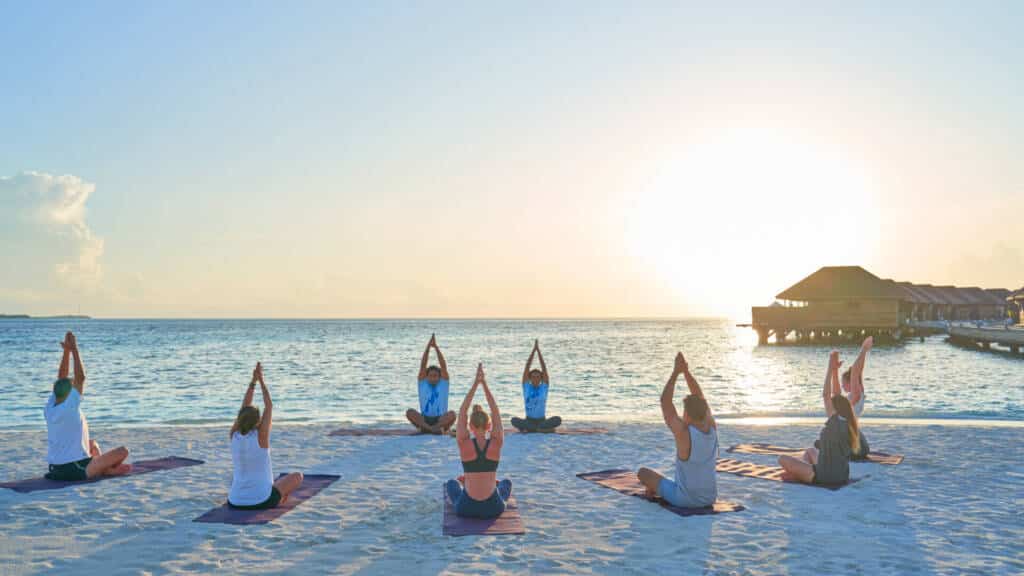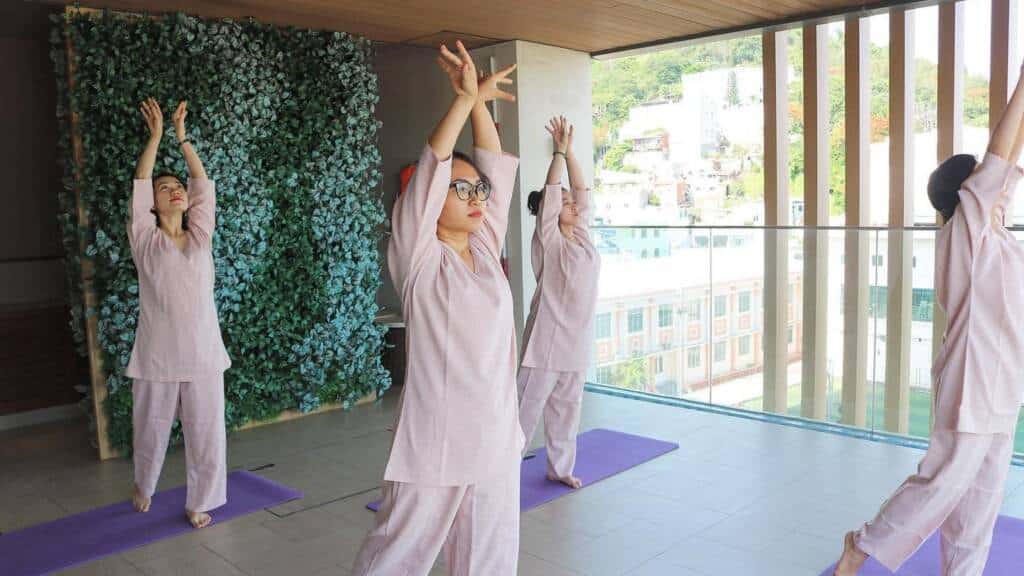World Wellness Weekend 18-19-20 Sept 2026 #WorldWellnessWeekend #WellnessForAll #WellnessWeekend
Publié le

In the whirlwind of modern life, where distractions are abundant and time feels perpetually scarce, the art of mindfulness offers an oasis of peace. More than just a buzzword, mindfulness is a practice with ancient roots and a transformative impact on the mind, body, and spirit.
As we strive for wellness in an increasingly fast-paced world, mindfulness stands out as a powerful, science-backed tool for living with intention and joy.
Mindfulness is the practice of being fully present in the moment, aware of where we are and what we’re doing, without judgment. It’s not about silencing the mind but embracing each thought, emotion, and sensation with curiosity and acceptance.
Pioneers like Jon Kabat-Zinn have popularized mindfulness in the West, framing it as “paying attention, on purpose, in the present moment, and non-judgmentally.”
While its roots trace back to ancient Buddhist traditions, mindfulness has found its place in modern wellness movements, workplaces, and even classrooms, showing that its benefits transcend cultures and generations.

The impact of mindfulness is not just anecdotal—it’s measurable. Neuroscientific research has demonstrated that consistent mindfulness practice physically changes the brain. For example:
Studies from Harvard University show that mindfulness increases gray matter density in regions of the brain associated with learning, memory, and emotional regulation.
Mindfulness reduces levels of cortisol, the primary stress hormone, by 28% after just eight weeks of practice, according to a study published in Psychoneuroendocrinology.
A 2024 report from the World Health Organization revealed that individuals practicing mindfulness were 23% less likely to experience symptoms of depression and anxiety compared to those who didn’t.
Researchers from the University of California found that mindfulness practitioners experience a 16% improvement in sustained attention and cognitive flexibility.
Mindfulness also benefits physical health, aiding in better sleep, reduced chronic pain, and stronger immune function. With these benefits, it’s no wonder mindfulness has become a cornerstone of wellness worldwide.
As digital devices compete for our attention and multitasking becomes the norm, many of us struggle to stay present. We’re constantly planning the next step, reliving past mistakes, or getting swept up in the endless cycle of notifications.
Mindfulness offers a pause button—a chance to reset and reconnect. By anchoring ourselves in the now, we can better navigate life’s challenges with clarity and resilience. In 2024 alone, over 45% of wellness practitioners identified mindfulness as their most effective tool for fostering inner peace and balance.

Mindfulness doesn’t require hours of meditation or elaborate rituals. It’s about integrating small, intentional moments into your daily routine.
Here are some simple ways to practice mindfulness:
Spend five minutes focusing on your breath. Inhale deeply, exhale slowly, and notice the sensation of air entering and leaving your body.
At the end of the day, write down three things you’re grateful for. This practice not only cultivates mindfulness but also boosts happiness by 25%, according to a study by Positive Psychology.
Take a few moments to tune into each part of your body, releasing tension and fostering a sense of relaxation.
Savor your meals by paying attention to flavors, textures, and smells. This practice has been shown to reduce overeating by up to 30%.
Set aside designated times to unplug from devices. Use these moments to observe your surroundings or connect with loved ones.
Mindfulness isn’t just about individual transformation—it’s a practice with ripple effects that extend to communities and beyond.
When we’re more present and grounded, we engage with others more thoughtfully, creating stronger, more meaningful relationships. Mindful leadership, for example, has been shown to increase workplace productivity by 22% while reducing employee burnout.
Parents who practice mindfulness are better equipped to navigate the challenges of parenting with patience and compassion. Even students report higher academic performance and lower stress levels when mindfulness is integrated into their routines.
Mindfulness is now a global phenomenon, embraced by diverse cultures and communities. From schools in Denmark teaching mindfulness to children as young as six, to mindfulness apps like Headspace and Calm reaching millions worldwide, the practice is uniting people in their pursuit of peace and presence.
In 2024, the mindfulness industry was valued at $4.7 billion, a testament to its growing role in our collective well-being. This growth underscores a universal truth: no matter where we are or what challenges we face, mindfulness is a bridge to better living.
As we look to the future, the practice of mindfulness invites us to reimagine what it means to live well. It’s a reminder that wellness isn’t about achieving perfection but embracing each moment as it is.
Mindfulness is more than a tool for managing stress; it’s a way of being—a commitment to living fully and authentically. Imagine a world where individuals take a moment each day to pause, breathe, and simply be. The ripple effects of such a shift could transform not only our individual lives but also the collective well-being of society.
Mindfulness is not a destination but a journey, and the beauty of this journey lies in its simplicity. Whether it’s the first deep breath of your morning, a mindful walk in nature, or a heartfelt conversation with a loved one, these moments add up to a life well-lived.
So, as you move through your day, pause for a moment. Notice the rhythm of your breath, the warmth of the sun, or the joy in a shared smile. In these small, present moments lies the essence of mindfulness—and the key to a healthier, happier you.